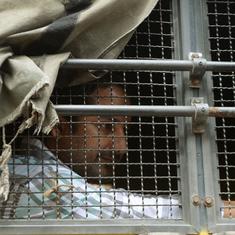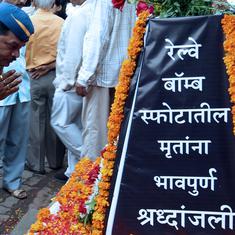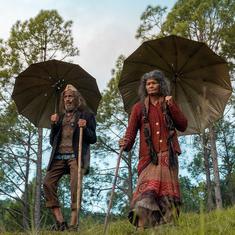The letter arrived in a long yellow envelope. The monogram and address of the sender were inscribed on the left. There was a motto as well: Banglar Akash Rakhibo Mukto: “Free shall we keep the sky of Bangladesh”. A bird was flying, wings spread into a “V” on the paper. It was difficult to figure out the species – was it a pigeon, an eagle, a kite or a vulture?
A typewritten letter nestled inside the envelope. It had come from the Bangladesh Air Force.
Banglar Akash Rakhibo Mukto. The big eagle. According to folktale, a similar bird of prey had once chased Behula. Under the curse of the goddess Manasha, a washerwoman from heaven, in the guise of a kite, had tried to snatch a bone off Lakhinder’s ribcage. Behula had been floating on a raft on the river Gangur with the dead body of her husband. She would not allow her husband to die.
The letter was typed on a coarse, reddish piece of paper. Like a shroud. Like boiled aush rice. At the bottom were typed three Xs and then the typist’s name – Saiful.
The letter carried a short message, so short that it became difficult to decipher. Rather, it raised a number of questions.
“The martial law tribunal has sentenced Corporal Joynal Abedin (Badge No. Ka 44061) to death for an attempted coup in the defence forces on 2 October 1977.”
Ayesha Begum folded the letter neatly and put it back inside the envelope. She then wrapped it in the polythene bag that had come with a vest for her two-year-old son, Fakhrul. This had been the last gift that Joynal had bought for his son.
The polythene-wrapped letter was now sitting in the pocket of the cheap travel bag.
It was clear from the letter that Joynal Abedin had been sentenced to death. But had the verdict been carried out? If it had, when and where had the sentence been executed? If he had been hanged, what had happened to his body? Shouldn’t his relatives get the body? That should be the rule – shouldn’t it?
So, did the fact that they had not yet received the body imply that he was still alive? Had his death sentence been commuted to a life term? Or had the political scene changed before the day of his execution? Had the counter-revolutionists seized power and released Joynal? Had they then sent him abroad on some training, or had he been posted to a foreign mission, to an African country on a peace mission? All these questions were hooked to the claws of the eagle that was inscribed on the envelope. Free shall we keep the sky of Bangladesh. Polythene wrapper. Travel bag.
For the last twenty years, Ayesha had kept this letter carefully. Twenty years ago, the postman had arrived like an angel of death with this letter in hand. His khaki shirt had been soaked with sweat. His feet in sandals had been crusted with dust. He had been standing with his bicycle, the chain fallen off. The chain cover was missing. His trouser was folded upwards on the right leg to avoid the oil, but was smeared with black oil nonetheless.
Khaki clothes. The colour of wheat in the vast fields of Punjab. Khaki implying official, state affairs, power. Power implying the quick march-past. Left, right, left, right.
It had been a bright, autumn afternoon when the postman stopped at the door and yelled, “Is Mohammed Ashgar Mian home?”
The paddy fields stood ripe and full like the pregnant women in the village. In the backyard, a band of boys were out on a mouse-hunting party. They had caught a mouse in a trap the previous night and were beating it to death with all the happiness and zeal in the world. Their hollering drowned every other noise. An eagle hovered in the sky in the hope that it would get a share of the mouse. Its wide wings cast a large shadow on the ground.
The postman bellowed, “You’ve got a letter! A parcel! Anybody home?”
Ashgar Mian was not home. His daughter-in-law Ayesha appeared. Her heart jumped at the sight of the postman. He must have brought news from her husband Joynal. But what was handed to her were the letter and a parcel. Inside the parcel were Joynal’s clothes and twelve taka. When Joynal had last left home, he had been wearing the clothes that had been returned in the parcel.
Ayesha trotted back to her room. Her eyes needed some time to adjust to the gloom in the room from the glorious sun outside. She sat on the bed by the window and opened the letter.
Joynal Abedin had been sentenced to death.
For the first few seconds, she understood nothing. Her mind went blank, as blank as a shroud, as white as boiled aush rice. Very slowly, the meaning of the letter started settling in her brain. Suddenly, she felt her universe shifting under her feet. She let out a shrill cry, “O Allah!”
Hundreds of eagles were flying in her sky with claws outstretched. Their wings chopped the air.
Her cry had been unrelenting. It had the noxious effect of a snakebite and drowned out all other sounds around – the chirping of birds, the green pigeon’s gentle crooning in the bamboo bush, the chickens cackling, the monotonous drilling of the borer insect into the wood, the din of children playing outside. Everything had turned blue as soon as the scream touched them.
People had crowded around Joynal’s house. What had happened to his wife, they wanted to know. Joynal’s two-year-old son had been playing in the backyard. He had peed and created a small puddle, his buttocks smudged with wet mud. And Ayesha was lying on the floor, lifeless.
The letter had not contained any more information. And yet, it had attained a kind of respect that only a grave can. A kind of solemnity. The letter had not explained much. Not a word about whether Joynal was dead or alive, or where he was buried, in case he was dead. Nothing of that sort.

Ayesha looked out into the darkness as the bus zoomed through the night. The windows were loosely shut. A cold wind penetrated through her bones. Ayesha sat there, clad in a burqa. Only her face was exposed.
On her left was a teenaged boy deep in sleep. He was swaying over her shoulder. Initially, Ayesha was irritated. She shoved the boy away a few times. But then she felt a kind of compassion for him. The boy was at least four years younger than her daughter.
Women are like that. They are made of love and tenderness. They always feel a kind of motherly love, even when they are caressing their husbands.
The bus had started from Rangpur. Ayesha got on a little distance down at Mithapukur. The words “Balaka Transport” was emblazoned on the bus. Balaka, an egret. A heavenly white bird.
But the name should have been “Chicken Transport’, the boy in the next seat joked.
He was not wrong. At Mithapukur, the chicken traders started hauling cages full of chickens on to the roof of the bus. Poor village farmers rear chickens through the year. They then send them off to Dhaka. Dhaka dwellers are known to be avid chicken connoisseurs. They eat chicken in every possible way—chicken fry, chicken curry, chicken pulao, chicken everything.
Joynal had once taken Ayesha to a Chinese restaurant and ordered chicken fry. There were only a handful of Chinese restaurants in Dhaka. And then Joynal cracked a very silly joke once the waiter had taken their order. With a sly smile, he said, “Do you know what the cocks say in the morning when they are out of the pen? They crow “What to dooooo!” And do you know what the hens reply? They say, “Fuck, fuck, fuck, fuck.””
That was Joynal. Always smiling, saying ridiculous things. Sparkling eyes and always in a good mood.
The boy on the next seat had, by now, leaned on her shoulder and fallen into a deep slumber. Ayesha felt a strange kind of tenderness growing inside her.
The night coach was hurtling through the dark sleeping villages. The fields were now full with ripened paddy. Some patches had been harvested. Only the hay lay there. Field mice scuttled around in search of leftover grain. The moon spread a pale light on the fog settling on the rice fields.
The highway was sleeping too. Dark trees hurtled past the roaring bus. Occasionally, a small neighbourhood would appear, yellow tungsten bulbs burning bleakly. The shuttered shops slept too. The whole universe was sleeping. anisul hoque 7Only the driver was awake. He would at times light a cigarette just to ward off sleep. He was playing a popular Bangla song on the cassette player: “Amar lakh takar bagan khailo dui takar chhagole re!” (“My million-taka orchard has been eaten up by a two-taka goat.’)
Ayesha tried to understand the problems in the singer’s life. What kind of an orchard could involve a million-taka investment? A betel orchard? Or a betel nut orchard? But then, how could a goat destroy it? And where could one buy a goat so cheap?
Joynal surely would have all the answers. He knew everything. Ayesha had boarded the bus at Mithapukur in the evening.

Excerpted with permission from The Ballad of Ayesha, Anisul Hoque, translated from Bangla by Inam Ahmed, Harper Perennial.










